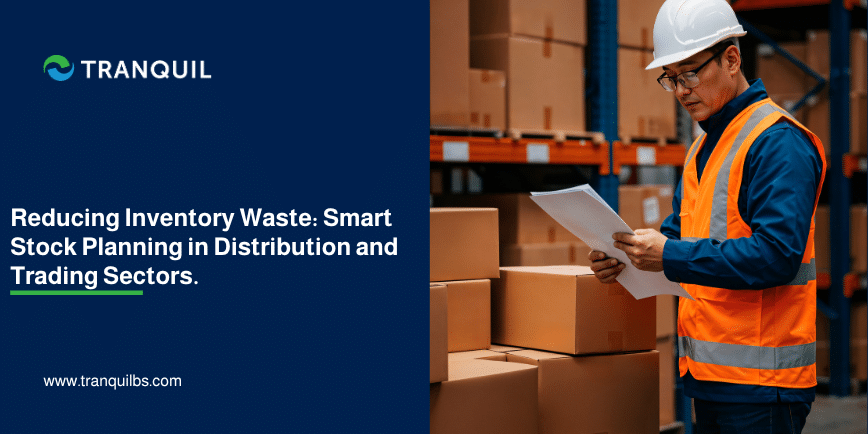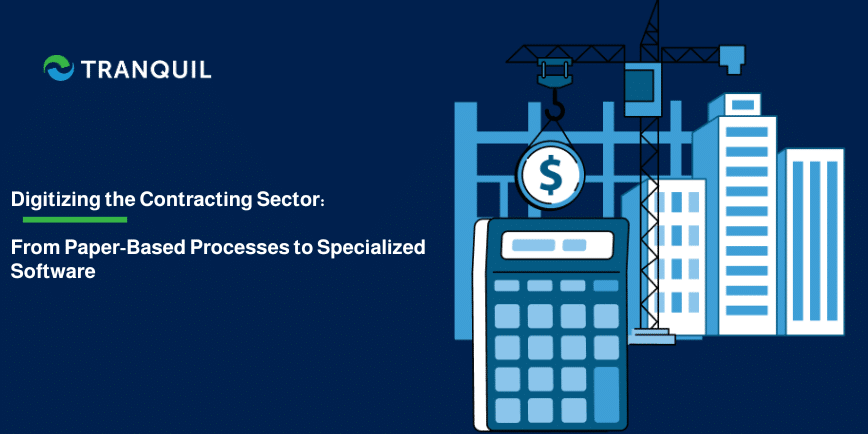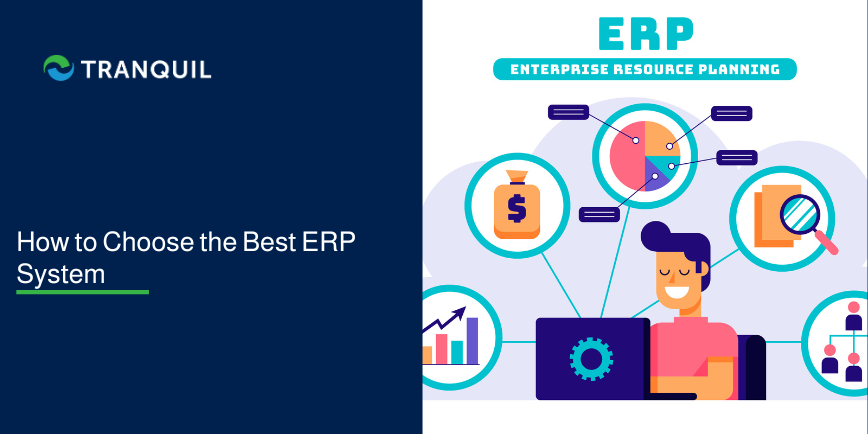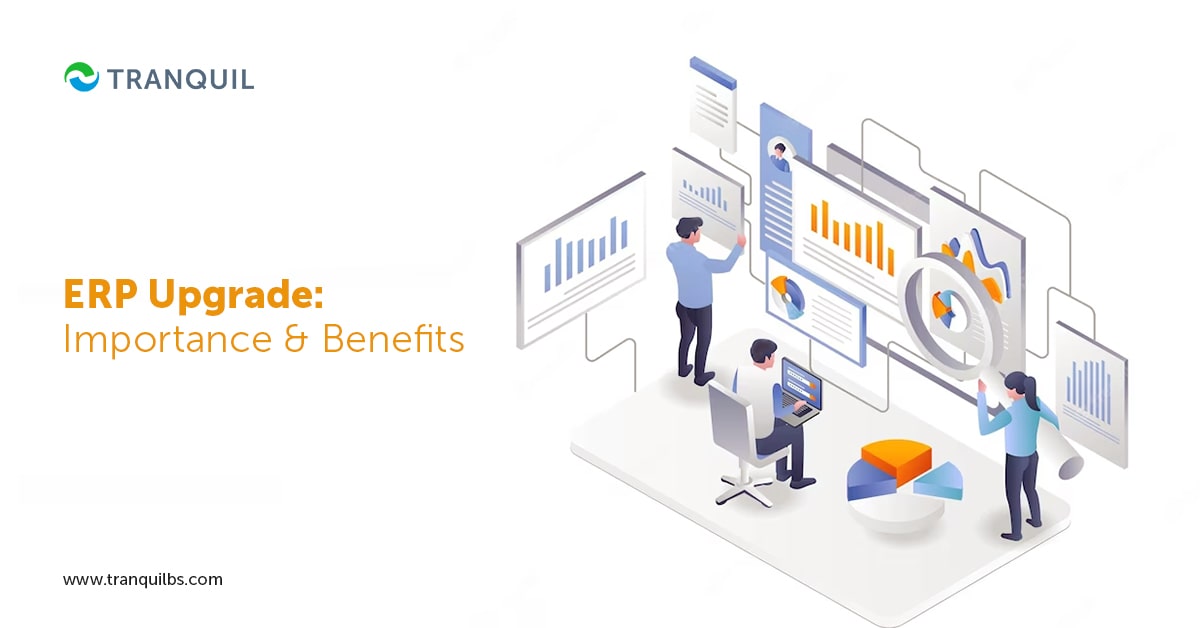
ERP Upgrade: Importance and Benefits
Technology has permeated every facet of our lives, and has become an intrinsic part of business.
Today most businesses use enterprise resource planning systems to streamline and automate their processes, centralize information, enhance collaboration, boost productivity and profitability.
ERP solutions save businesses significant amounts of time and money, and allow employees and management to focus on core business activities.
Over the years, ERP software has also undergone considerable transformation, to reflect the changing needs of business, and the advent of technology as well.
The current business environment is also vastly different from what it used to be previously.
Therefore, it is quite possible that the ERP system that you had implemented for your company years ago, is no longer sufficient for the current requirements.
ALSO READ: Guide on How Do ERP Systems Work
There could be a serious misalignment between the ERP software and your business processes and requirements; you may be due for an ERP upgrade.
If you don’t you could become stagnant and your profitability could dip. You’re likely to end up with obsolete systems that don’t offer you the desired benefits.
Upgrading your ERP means a huge expense; this means the management as to evaluate the present situation, and have a list of reasons to support their request for upgrading the existing system.
All stakeholders involved need to be told in detail about the issues being faced at present, and they must be convinced about the need for an ERP system upgrade.
This is because most people are comfortable sticking with a known system even if it is outmoded.
Hence, it will be good for you to have a project plan and a checklist ready when you make your presentation.
ALSO READ: Critical Factors for a Successful ERP Implementation
Why Are ERP Upgrades Important?
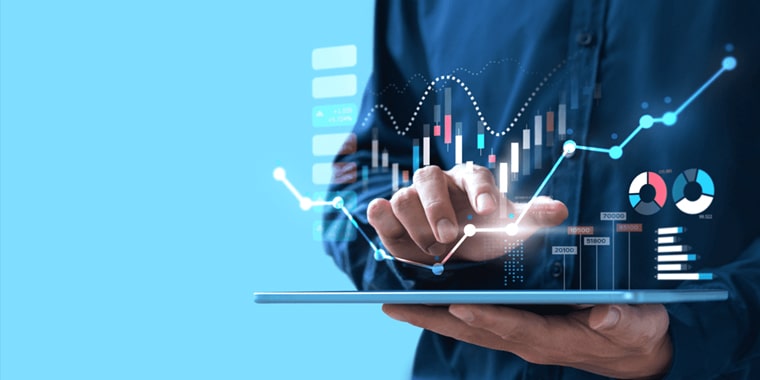
ERP software upgrades are essential because they can create tremendous value.
The modern ERP solutions have features that enable your business to save substantially on expenses or leverage new opportunities – something legacy software cannot.
ERP systems today offer visibility in real-time thanks to KPIs, scorecards, and all-inclusive dashboards.
They use machine learning and AI to bring in even more automation and enables management to take more informed decisions.
Most of the ERP solutions like Tranquil are cloud based, have adopted enhanced ecommerce capabilities that are also integrated better, and offer excellent mobile support – making remote access easy.
Cloud based software is also extremely secure and you have little downtime in the event of a system crash too.
All of these features are very important today, as both business relationships and processes are evolving rapidly, and moving increasingly into the digital space from the physical.
Some ERP solutions also integrate IoT to deliver extra information in real time including info on the status, affording more control over supply chains, and identifying potential hiccups at the early stages itself.
Today, supply chains have increased in complexity, leaving numerous avenues for things to go wrong.
However, if you upgrade your ERP system, you may just be able to avoid all of these issues.
ALSO READ: Common ERP Myths
Upgrade or Replace?
Well, this depends on which method will offer your business the most value, and of course, how much each will cost the business.
Both these options have their own pros and cons, depending on the needs of the business and the shortcomings of the legacy system.
Therefore, there is no definite answer to this question, certainly no one-size-fits-all solution.
Benefits of Upgrading Your ERP system
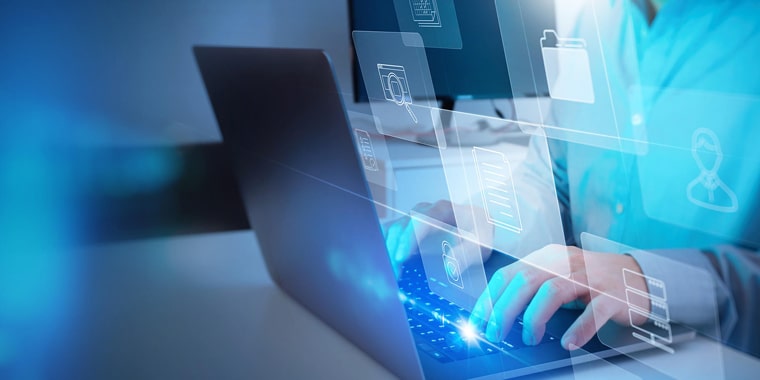
Let us now look at ERP upgrade benefits in detail:
1. Increased Automation
New and advanced ERP software has features that allow you to save considerable time.
You can minimize manual tasks and avoid most paper-based processes that are time consuming and cumbersome.
Automation enables employees to focus on value adding tasks that propel the business towards growth.
Data entry automation, new report templates and so on are examples of new features and developments.
ALSO READ: Benefits of Blockchain in Cloud Computing
2. Safeguard your Data
With older systems, your sensitive data is more vulnerable to cyber-attacks.
Modern ERP solutions use ironclad security protocols, making chances of data theft or breach very slim.
It is also mandatory nowadays thanking to increasingly strict government and industry regulations regarding safeguarding of sensitive customer information.
3. Better Quality Systems
Information systems are rapidly evolving, rendering software released even 5 years ago obsolete and unusable.
Similarly, the quality of ERP solutions continues to increase quickly; everyone wants the best quality, obviously.
The more enhanced and feature-rich your ERP solution, the more you can support your business with streamlining and automation, and the greater your success is likely to be.
ALSO READ: Why ERP User Interfaces are Important?
4. Better Performance
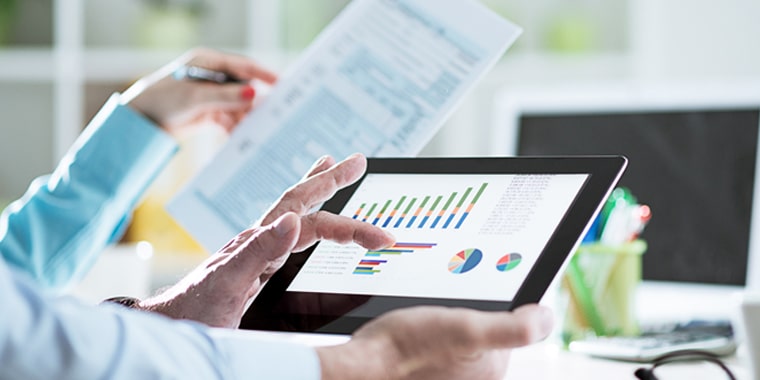
Quite frequently, one comes across performance issues with ERP software, and this can be a very complicated matter.
The problems in performance could be caused by one of several reasons like software glitches, server issues, poor connectivity, or something else.
These problems tend to build up over time and occur more frequently, causing a lot of bother, not to mention that it may disrupt operations and cause severe problems with inventory, orders, etc.
ERP upgrade process also may cause a little disruption but it is minimal and can be easily managed; after upgrading, you are sure to experience much-improved performance than before.
5. Higher User Productivity
Upgrading your ERP software can help you increase employee productivity significantly.
By spending little to no time on routine administrative tasks, your staff can do more productive, value-adding jobs, gain quick insights into important data, and have it much easier with new software.
Happy employees are productive employees; productive employees lead to increased revenues.
ALSO READ: ERP Configuration vs. ERP Customization vs. ERP Personalization
6. Higher Process Productivity
The main task of ERP software is to support business processes; which is why, when you are thinking of a system upgrade, you need to take a very close look at the processes you are using in our business currently.
At Tranquil, we take time to understand and study your process flows in the diagnostics stage, and then determine how the software can best automate it.
Ideally, the new system or system upgrade should be able to streamline your processes, and also support processes that you were performing manually till now, or were using a less efficient software to accomplish.
7. Get a Competitive Edge
If you are unwilling to switch to a newer version and continue with the outdated one, you stand to get left behind and lose out to your competitors, because they are highly likely to upgrade their systems.
They may start offering much better customer service and improve their processes, operations, and productivity, increasing their profits, leaving you huffing and puffing behind.
If you upgrade to the latest systems, you can get ahead of them.
ALSO READ: ERP Trends
8. Real-time Visibility
A modern, feature-packed ERP like Tranquil provides comprehensive, accurate, and real-time visibility into your business.
You can even search through your databases and consolidate your sources to have detailed information at your fingertips.
All of these factors help you in making informed, data-driven decisions in all aspects of business, especially when planning and forecasting.
9. Scalability
Modern ERP solutions like Tranquil grow along with your business, as they are designed and developed to be scalable.
With every upgrade, it continues to grow and evolve, and support the growth of your business as well.
The ERP software of today also include additional features making them compatible with third-party apps, extending the functionality of your ERP.
ALSO READ: Key Benefits of ERP for Accounting and Financial Management
10. Better Integration within the Company

In case your company uses multiple software apps for multiple departments, you could have duplicate data, redundant data, missing data, and utter confusion.
However, with a robust ERP system, you can eliminate all of these different solutions, and have just one unified solution for every department.
You can have improved collaboration and cooperation, no ambiguity, as every department is on the same page.
All the relevant cross-organizational information can be accessed by everyone who needs to.
11. Better Integration with other Software
We already saw that many ERP solutions easily integrate with various third-party apps.
What benefits can this integration bring?
It can make everyday operations much smoother; for example, ERP can be integrated with CRM, field service solutions, web portals (e-commerce solutions), vendor systems, customer apps, and so on.
With this kind of integration, there is greater information sharing, which makes everything much easier.
ALSO READ: What are the Challenges in ERP Implementation?
12. Lower IT Costs
While it can cost a lot to upgrade your ERP, you need to think of it an investment, as it can significantly reduce your IT costs overall in time.
When you move away from outmoded tech that tends to crash and fail every now and then and install faster, more efficient applications, your speed, and performance improves tremendously, leading to improved processes and productivity.
You can calculate how much your desired or expected benefit is from the new system – both direct and indirect.
Compare this to the amount you are investing, and you can do a quick ROI analysis for your company.
Remember to include both the monetary and resource aspects.
ALSO READ: Benefits Of Software As A Service
13. Mobility

This is one of the best things about modern ERP systems.
Being cloud-based, they allow employees to work from home, on site, or anywhere else, and on any device at any time.
All they require is a steady internet connection and their login credentials, and they can access important information that is required to attain their targets for that day.
At Tranquil, we also offer a mobile app which is integrated with the web ERP, offering a seamless and easy experience for your employees.
By switching to the newer version, you can ensure that your system is functioning optimally and that you don’t have any issues when it comes to data syncing and staying connected to the system.
14. Compliance with Government Regulations
The new versions of ERP will also help you maintain compliance with various taxation, HR, and other government regulations; regulations are always changing, and the older ERP apps may not support the new compliance requirements.
ALSO READ: How ERP Software is Playing Role to Improve Business Productivity?
Risks of Not Upgrading Software
Let’s take a quick look at the dangers of not upgrading your ERP:
- When software companies release new versions of their software, they may no longer offer tech support for the older versions as it may not be feasible or worthwhile for them. Important and necessary updates to the software may also stop, creating security risks for your business. This is a very common occurrence in software.
- Your legacy software is likely to be on old servers which may be outdated now. If your organization is unable to update a system component, the whole software will be hosted on the old server, and this can substantially increase your security risk and leave your system vulnerable to cyber-attacks.
- Older systems are not security checked like the newer ones, and they are therefore more vulnerable to information theft or compromise. Advanced technology has very stringent security checks and protocols, making it almost impossible to penetration by normal malware and viruses.
Tranquil is a cloud-based, feature-packed and economically priced ERP software that can deliver immense benefits for your business. Schedule a FREE demo to know more.

